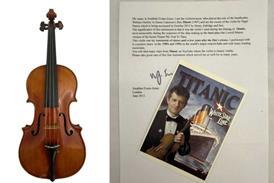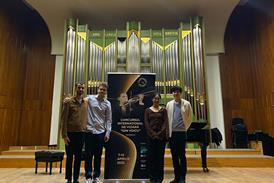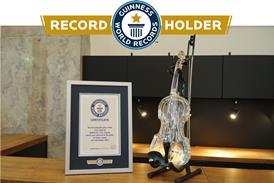Ariane Todes visits some iconic New York venues
It’s already the end of my first week here in New York, and I’m
settling in nicely, working out the difference between uptown and
downtown, and learning that asking for ‘warder’ rather than ‘water’
saves a lot of time.
Back in the office in London, whenever I read our New York concert
reviews, I always think dreamily about the venues, wishing I could
visit them. This week I got to two – the 92nd Street Y and Carnegie
Hall (for which I didn’t even have to practise, practise).
It’s hard to think of two more extreme concerts. On Thursday I
heard Steven Isserlis and Robert Levin performing an all-Beethoven
programme at the Y. This included sonatas op.5 no.1 and op.69,
nicely showing how far the composer travelled in his conceptions
both of chamber music and of the cello over the course of his
career.
It was a real treat to hear these played with fortepiano – Levin
used a model of a c.1805 instrument – revealing the original sound
world and a whole level of detail that often gets lost in the
resonance when played with piano. Suddenly, everything is about
lines and shapes rather than sound and projection. Isserlis and
Levin certainly revelled in the details and the interplay of the
lines, projecting the pure joy that Isserlis says he feels in
performing Beethoven. By way of encore he introduced his
transcription of an early Beethoven mandolin work, which deserves
more attention from players.
Where every detail could be heard in this concert, in the first
half of Saturday’s Spring for Music festival concert at Carnegie
Hall, I knew there was plenty of detail in the score, I just
couldn’t necessarily hear it all. Ives’s unfinished Universe
Symphony calls for five different orchestras and conductors often
doing different things at the same time in a variety of tempos.
It’s a huge, challenging work, with myriad things to concentrate on
at any time, all of which meld into one great and evolving whole.
This cacophony was pulled off impressively by the Nashville
Symphony Orchestra under conductor Giancarlo Guerrero.
In the second half violinist Tracy Silverman introduced Terry
Riley’s new violin work, The Palmian Chord Ryddle, on his
six-string electric violin. With its sweeping melodic lines,
contrasting sections and ample opportunities for virtuosity – all
of which Silverman pulled off with total commitment and great
charisma – this has all the hallmarks of a modern classic – with or
without amplification. The challenging but gratifying programme was
rounded off by Percy Grainger’s The Warriors: Music to an Imaginary
Ballet, Guerrero impressing with his unpretentious and firm, but
fluid, style.
To round off the week, tonight I went to a lesser-known venue, the
West Park Presbyterian Church, to hear some young people at the
very start of their careers. They were all students of Arik Braude
and Sophie Arbuckle, and get together under the name Jeunes
Virtuoses de New York. They performed conductorless, accompanying
each other in various solo pieces with great panache and technique
and a real sense of enjoyment.
So, it looks like there are going to be plenty of exciting string
things to keep me entertained while I’m here. To keep up to date
with where I get to, and suggest any ideas, follow me on my new
twitter feed: @TheStradEdInNY.
































No comments yet